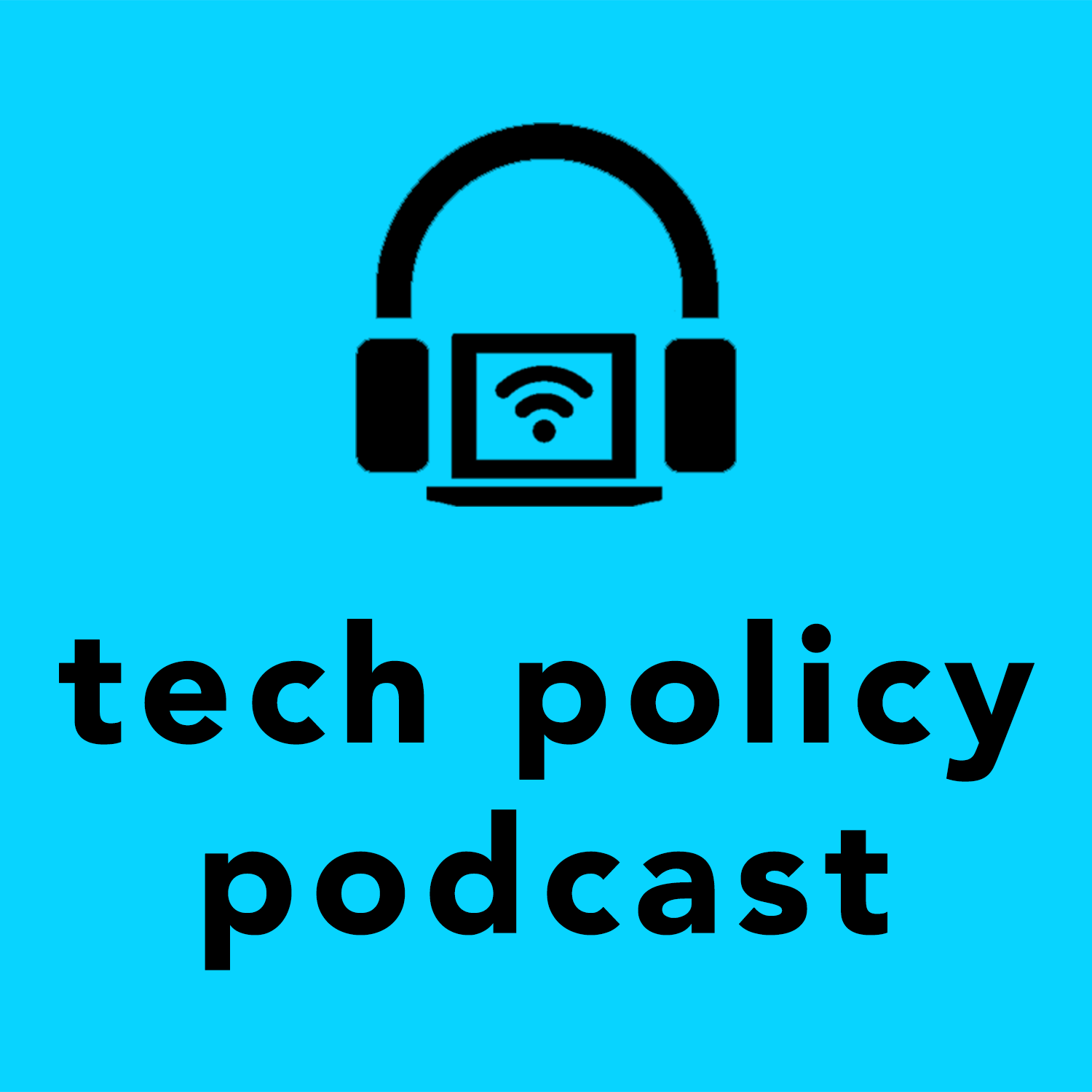Episodes
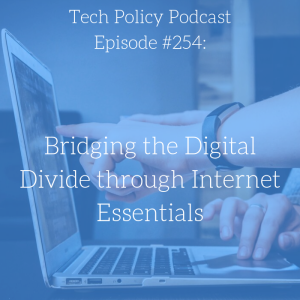
Thursday Oct 03, 2019
#254: Bridging the Digital Divide through Internet Essentials
Thursday Oct 03, 2019
Thursday Oct 03, 2019
Despite the fact that the Internet is more intertwined with our daily lives than ever before, far too many people in America lack a reliable connection and are left behind. Karima Zedan, Vice President of Digital Inclusion and Internet Essentials at Comcast, joins the show to discuss how Comcast is working to bridge the digital divide by offering low-cost service, the option to purchase a heavily subsidized computer, and providing digital literacy training opportunities in partnership with nonprofits around the country in an effort to expand access.
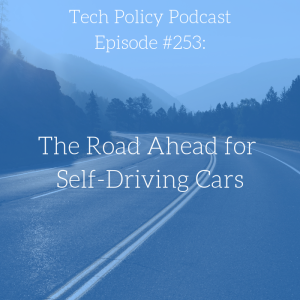
Thursday Sep 19, 2019
#253: The Road Ahead for Self-Driving Cars
Thursday Sep 19, 2019
Thursday Sep 19, 2019
As the technology behind self-driving cars becomes increasingly viable for more widespread use, lawmakers and regulators have grappled with creating a legal framework for them. Jamie Boone, Vice President of Government Affairs at the Consumer Technology Association, and Ian Adams, Vice President of Policy at TechFreedom, join the show to discuss the current regulatory landscape for autonomous vehicles at the state and federal levels.
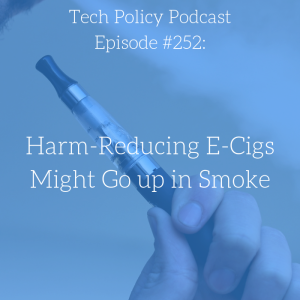
Wednesday Jul 31, 2019
#252: Harm-Reducing E-Cigs Might Go up in Smoke
Wednesday Jul 31, 2019
Wednesday Jul 31, 2019
Despite an ever-growing body of evidence showing that e-cigarettes are far less harmful than traditional combustible cigarettes and can serve as a valuable smoking cessation tool, efforts continue to restrict or outright ban them in the name of public health. Paul Blair, director of strategic initiatives at Americans for Tax Reform, joins the show to discuss the latest developments in vaping regulation. For more on the subject, see Blair’s work and Tech Policy Podcast episode #213.
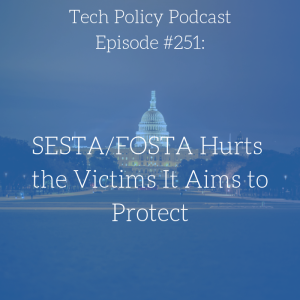
Thursday Jul 18, 2019
#251: SESTA/FOSTA Hurts the Victims It Aims to Protect
Thursday Jul 18, 2019
Thursday Jul 18, 2019
Last year, Congress passed SESTA/FOSTA, legislation intended to help law enforcement fight sex trafficking online. However, as numerous experts (including us) predicted, the law has ultimately pushed sex workers into more dangerous practices and made online platforms less likely to assist law enforcement due to fear of liability. Kendra Albert, clinical instructional fellow at the Cyberlaw Clinic at Harvard Law School, joins the show to discuss how the law has backfired and what to expect in the legal challenges against it. For more, see episodes #189 and #218 of the podcast, and Albert’s work at Harvard.
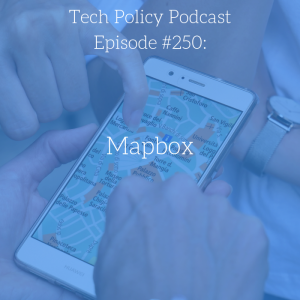
Friday Jun 14, 2019
#250: Mapbox
Friday Jun 14, 2019
Friday Jun 14, 2019
Apps increasingly rely on user location data as part of their services, but how private is that data kept? Ash is joined by Tom Lee, policy lead at Mapbox, which provides mapping and location services to a range of companies including Snapchat, TikTok, and the Weather Channel. Lee discusses how Mapbox provides useful location services while still protecting user privacy, and how the US can develop privacy laws to help preserve this balance.
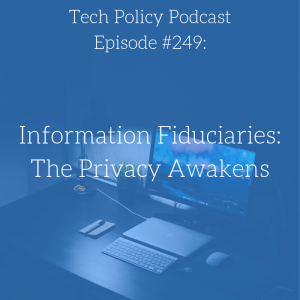
Wednesday Jun 05, 2019
#249: Information Fiduciaries: The Privacy Awakens
Wednesday Jun 05, 2019
Wednesday Jun 05, 2019
On the previous episode of the show we covered a new legal concept of information fiduciaries and how it can apply to tech policy. Today we are diving in deeper and applying the concept to privacy with Lindsey Barrett, staff attorney and teaching fellow at the Institute for Public Representation Communications & Technology Clinic at Georgetown University, joins the show to discuss the difference between American and European views on privacy, and how a privacy policy based around the concept of information fiduciaries might look in the US. For more, see Barrett’s recent paper on the subject.
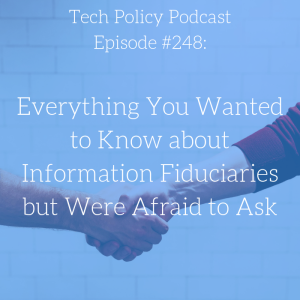
Tuesday May 28, 2019
Tuesday May 28, 2019
The reaction against the ever-growing amount of information collected by tech giants has led to proposals ranging from self-regulation to strict GDPR-style privacy, and even the potential break-up of larger companies. But could treating tech companies as information fiduciaries — creating a legal obligation to be trustworthy in their use of our data — help solve this privacy problem? Ash is joined by Jack Balkin, Knight professor of constitutional law and the First Amendment at Yale Law School and founder Yale’s Information Society Project, and Mike Godwin, senior fellow of technology and innovation at the R Street Institute. For more, see Balkin’s work on the subject (law review article, website, Balkinization blog), and Godwin’s book, The Splinters of our Discontent.
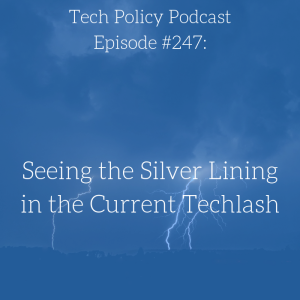
Monday May 13, 2019
#247: Seeing the Silver Lining in the Current Techlash
Monday May 13, 2019
Monday May 13, 2019
Growing anti-tech sentiment both in the government and the general public has led to calls for policies that threaten to stifle innovation. Despite this rising techlash, there’s reason to be optimistic about the future of innovation, according to Jesse Blumenthal, director of technology and innovation policy at the Charles Koch Institute, who joins the show to discuss the latest developments in consumer privacy, antitrust, social media bias accusations, and more. For more, see CKI’s work on tech and innovation, and the Pessimists Archive podcast.
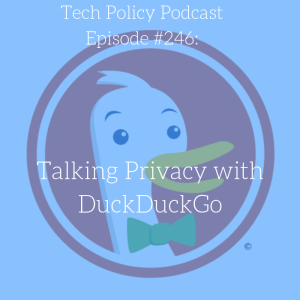
Tuesday May 07, 2019
#246: Talking Privacy with DuckDuckGo
Tuesday May 07, 2019
Tuesday May 07, 2019
As the consumer privacy debate rages on in the policy world, DuckDuckGo has made a name for itself by providing a range of privacy-protecting tools and services for consumers. DuckDuckGo CEO and Founder Gabriel Weinberg joins the show to discuss how users are tracked online, as well as what both DuckDuckGo and upcoming legislation are doing to change that. For more, see DuckDuckGo’s Do Not Track Act model legislation, their coalition letter in support of the Privacy for All Act, and our most recent episode on the encryption debate.
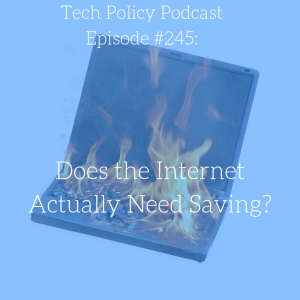
Wednesday Apr 24, 2019
#245: Does the Internet Actually Need Saving?
Wednesday Apr 24, 2019
Wednesday Apr 24, 2019
The Save the Internet Act, intended to force the FCC to revert to regulating the Internet under Title II, passed the House earlier this month and will soon be considered in the Senate. But is the legislation even necessary to protect consumers? Is it legally sound, or will it create new complexities and unintended consequences? TechFreedom President Berin Szóka joins the show to discuss. Here you can find the blogpost about Santa Clara Fire and Verizon and TechFreedom’s analysis of the Save the Internet Act.

